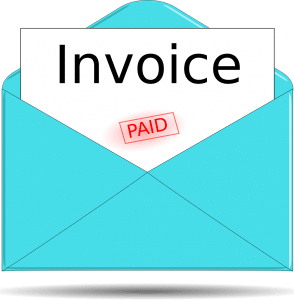Diving into the world of health insurance can be intimidating. It’s easy to get overwhelmed when you’re looking for a plan because of all of the jargon and terminology that you need to become familiar with. But knowing what everything means as you research plans will help you to determine which one is best for you and your family, and will ensure you get the best coverage at the best price. Whether this is your first time buying health insurance or not, knowing the following health insurance terminology will help you make a more informed decision.

Actual Charge
This is the dollar amount that is charged by a doctor or other healthcare provider for a particular medical service or treatment.
Actuary
A person that is trained in the mathematical and statistical aspects of the insurance industry. They are the ones who calculate premium rates and assist in estimating the costs and savings of your health insurance plan.
Allowed Amount
Also sometimes called an eligible expense, a payment allowance, or negotiated rates, an allowed amount is the amount that your insurance company is willing to pay for a covered healthcare service. If your provider charges more than the allowed amount, you might have to pay the difference.
Balance Billing
This is a bill for the amount that you owe for a particular service after insurance has paid its share – in other words, the difference between the actual charge and the allowed amount. For example, if your provider charges you $200 for a service, and the allowed amount is $100, your provider will most likely bill you for the remaining $100.
Coinsurance
This is your share of the cost of a covered healthcare service, calculated as a percent of the allowed amount for the service. You generally have to pay the coinsurance plus any deductible that you owe. For example, if your health insurance plan’s allowed amount is $100 for an office visit and you’ve met your deductible, your coinsurance payment of 20% would be $20 for the visit.
Co-pay
This is a fixed amount you pay for covered health care services, such as visits to your doctor, specialists, or any other health care professional. Your co-pay will vary depending on the type of covered healthcare service you receive: visits to a primary care physician, specialist, and the emergency room will all be priced differently.
Deductible
This is the amount you have to pay each year in medical expenses before your health insurance will kick in and begin to cover the rest of the year’s medical expenses. For example, if your deductible is $2,000, your plan will not pay anything until you have met your $2,000 deductible for covered healthcare services.
Drug Formulary
A list of prescription medications that are selected for coverage under a health insurance plan. Prescription drugs can be included on a drug formulary based on their efficacy, safety, and cost-effectiveness. Some plans will place medications on different tiers, which will change the price of the medications. Some health insurance plans may require that patients obtain preauthorization before non-formulary drugs are covered.
Durable Medical Equipment
If you need any medical equipment, such as crutches, oxygen apparatus, wheelchairs, or even blood testing strips for diabetes, your health insurance plan will most likely cover the cost of these things up to a certain point. Generally, you will have to pay coinsurance for any durable medical equipment that you receive.
High Deductible Health Plan (HDHP)
This type of plan has lower monthly premiums, but a high annual deductible. These plans are generally aimed at people who are healthy and do not go to the doctor often, and so do not expect to have to meet the high deductible.
In-Network Vs Out-of-Network

If a healthcare provider is in-network, that means your health insurance plan will cover services provided by them. These are very important terms to know, because if you seek services from a healthcare professional who is considered out-of-network by your plan, you might have to pay for the service completely out-of-pocket.
Out-of-pocket Limit
This is the most that you will have to pay for medical services during a policy period, which is usually a calendar year. Your premiums and most other medical expenses paid out-of-pocket will count towards your limit, but you should be aware that some plans will not count co-payments, deductibles, or coinsurance, so it’s important to check your policy.
Premium
The amount that you will pay for health insurance every month. Your premium does not include any other expenses. If you do not pay your premium, you will lose your health insurance coverage.
Specialist
A healthcare professional that specializes in a certain condition or area of the body. Specialists include gastrologists, dermatologists, and podiatrists, for example. Seeing a specialist will cost more than seeing your primary care physician, so your co-pays and actual charges will be higher.
UCR (Usual, Customary, and Reasonable)
This is the amount charged for a medical service within a specific geographic area, based on what providers in the area usually charge for the same or similar medical service.
The best way to understand how health insurance works, and to find the right plan for you and your family’s specific needs, is by working with an agent who specializes in health insurance. EZ can help: we offer a wide range of health insurance plans from top-rated insurance companies in every state. And because we work with so many companies and can offer all of the plans available in your area, we can find you a plan that saves you a lot of money – even hundreds of dollars – even if you don’t qualify for a subsidy. There is no obligation, or hassle, just free quotes on all available plans in your area. To get free instant quotes, simply enter your zip code in the bar above, or to speak to a local agent, call 888-350-1890.